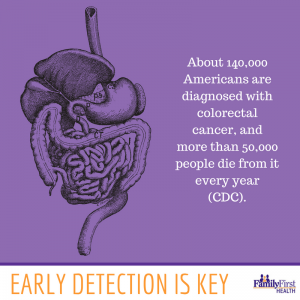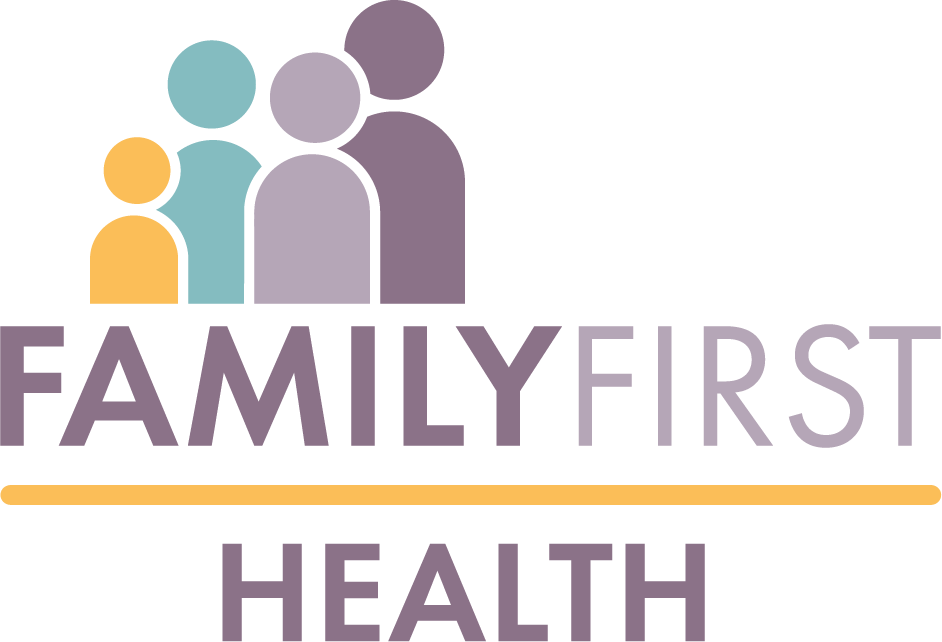When you think about colorectal cancer…wait, do you even think about colorectal cancer? Maybe not frequently but the term may bring some thoughts or people to mind. Many celebrities have been affected by colorectal cancer including Audrey Hepburn, Katie Couric, and Jack Lemmon. The Centers for Disease Control (CDC) reports that every year, about 140,000 Americans are diagnosed with colorectal cancer, and more than 50,000 people die from it. This may not seem like a significant number, but when you think about how easy it is to be screened and that early treatment equals good outcomes, you might wonder why you don’t hear more.

When I think of colorectal cancer, I automatically think of my grandfather, Elwood Schlerf. Elwood was a hardworking farmer and father to five children in rural Maryland. In 1971, long before I was even close to being a twinkle in my mother’s eye, my grandfather died at the age of 59. My mom, who was 14 at the time, doesn’t talk about him much but the anecdotes I’ve heard make me ache for her and my grandmother. At the end of his life, he could not care for himself at all, and with them being farmers meant that money was tight and there was no one else to take care of him except my mom and grandmother. I’ve heard mom talk about sitting by his skeletal frame in bed and feeding him like a child while he wasted away in front of her eyes.
Only two years prior to his death, colonoscopy was introduced as a method for detecting colorectal cancer but at that time it was not a widely spread or accepted procedure. Colorectal surgeon Dr. Arie Pelta explains, “Colonoscopy expanded and became more widely accepted in the 1970’s and 1980’s” and in time became a common procedure. My grandfather just missed out, at the time of his diagnosis, his cancer had progressed significantly and there wasn’t much that could be done for him. Now 40 years later we have excellent screening tools and technology that is widely utilized that can detect colorectal cancer early. Cancer research UK reports, since 1971, deaths due to bowel cancer have dropped from 29 in every 100,000 people to 17. This is largely due to the availability and expansion of screening methods like colonoscopy.
Screening is easy, if you’re 50 years or older, your Family First Health provider can refer you for screening and discuss your risk for colorectal cancer. If you have had a change in bowel habits, pain, cramping, or bloody stools, or if there is a history of colorectal cancer in your family, be sure to talk to your Family First Health provider today because early detection is key.
Shannon L. McElroy, Marketing and Outreach Coordinator
